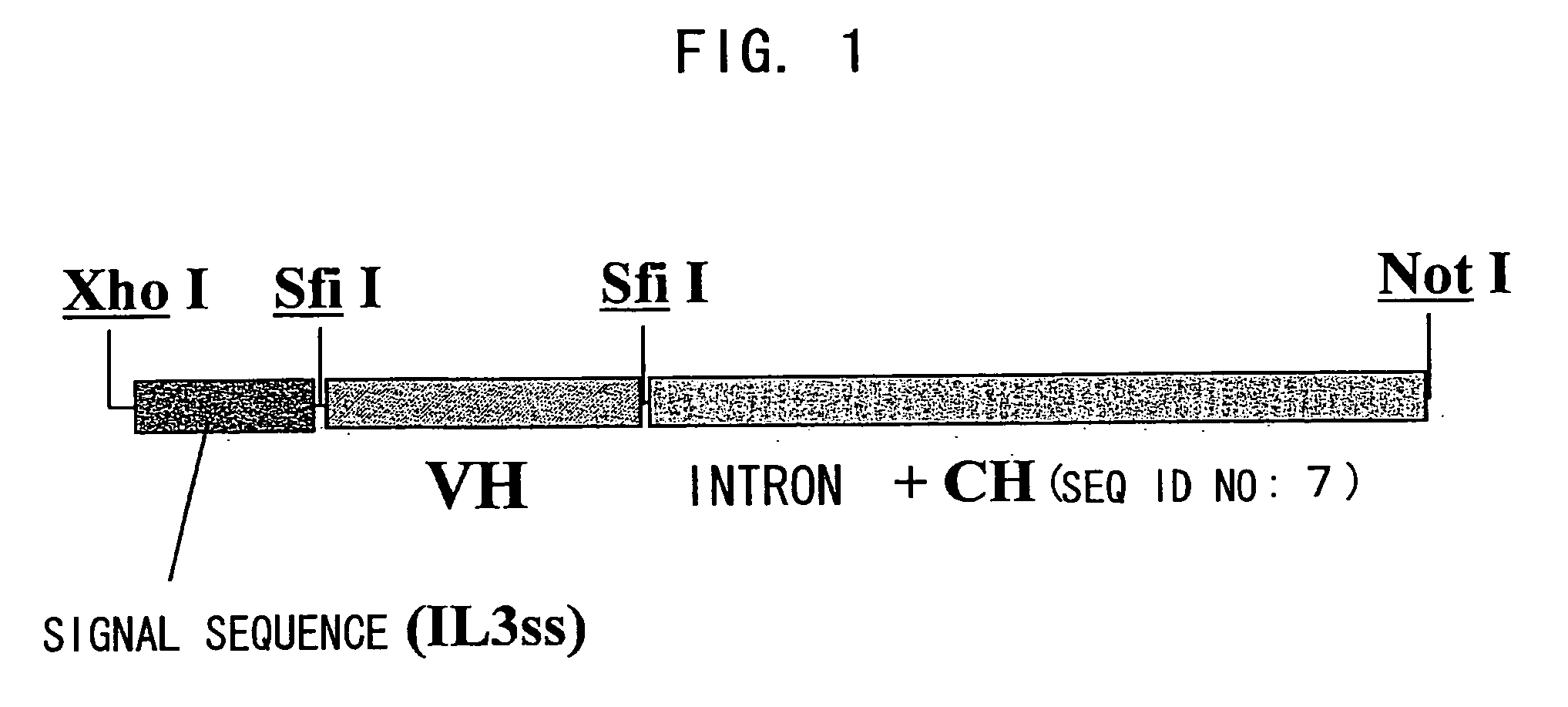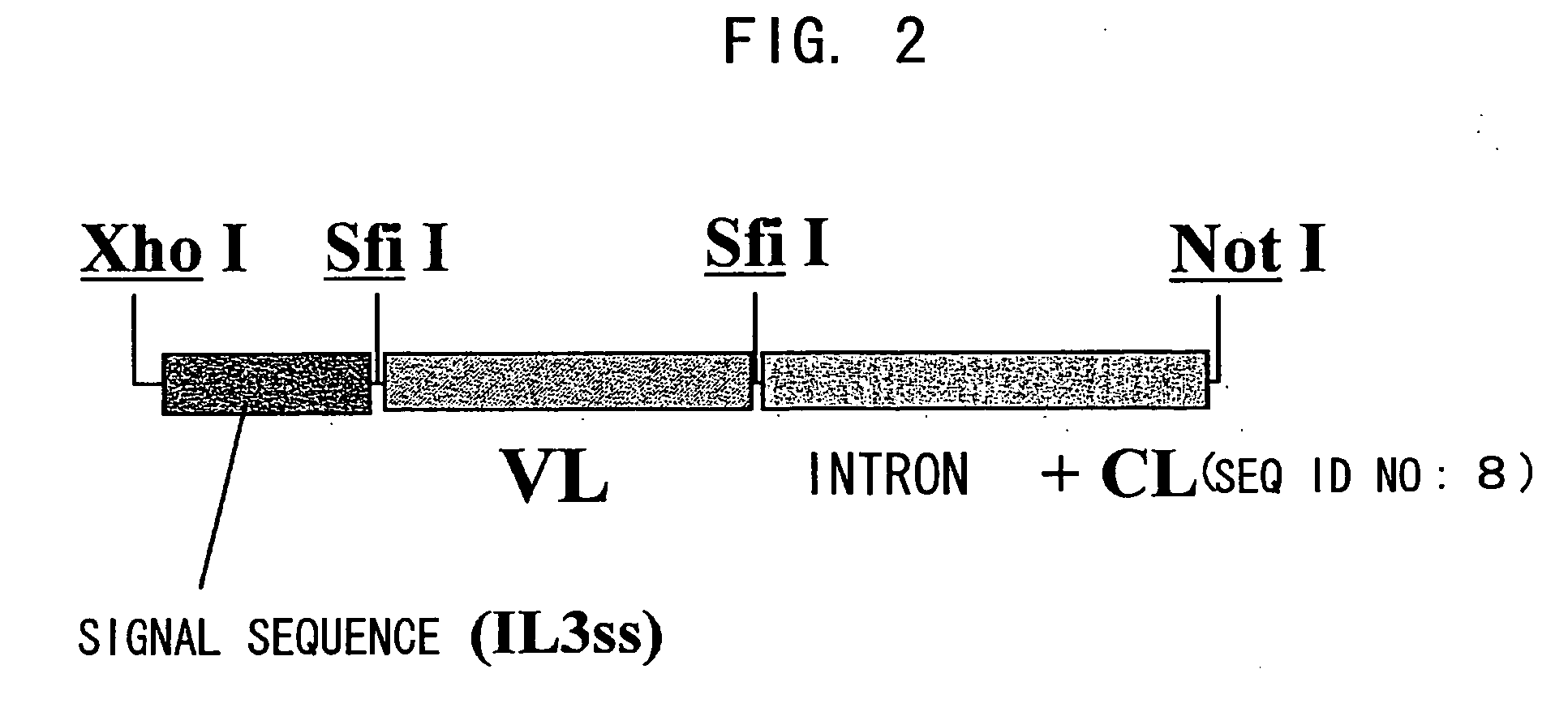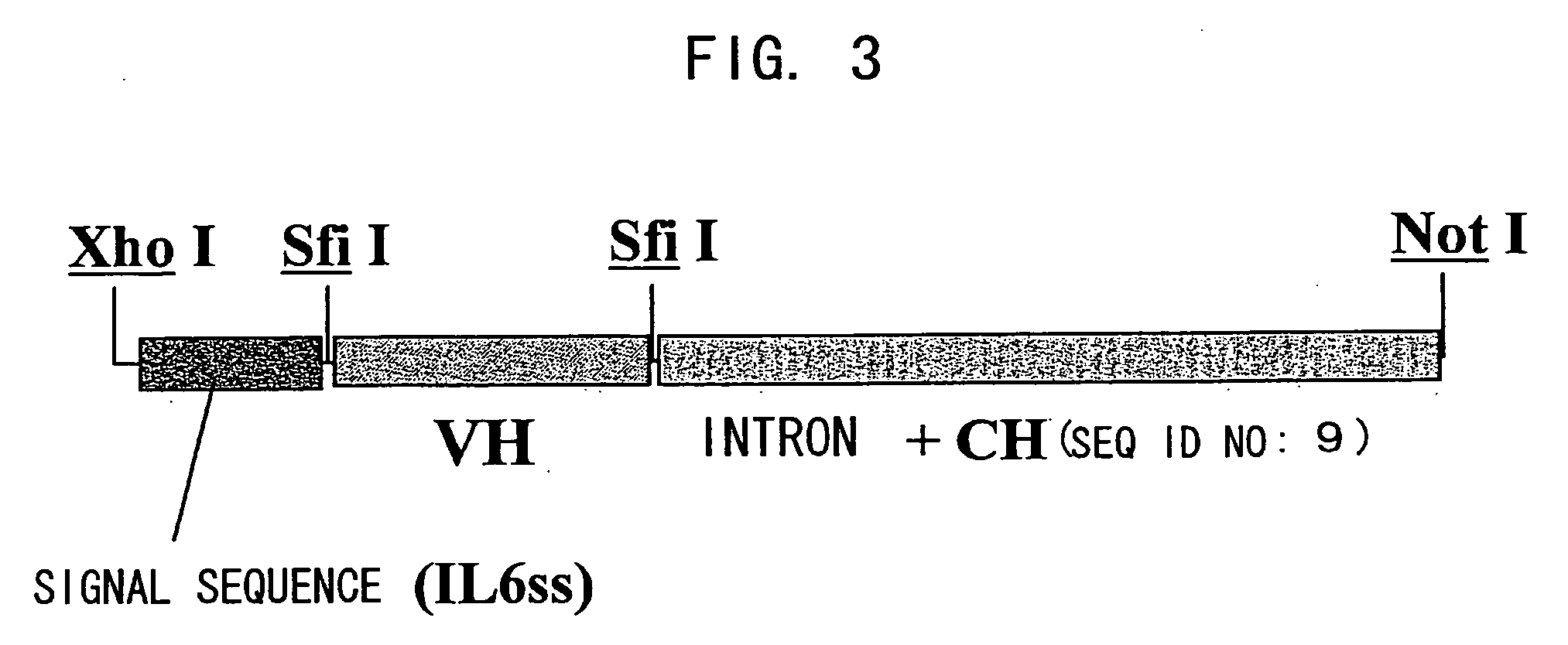Bispecific antibody substituting for functional proteins
a technology of functional proteins and antibodies, applied in the field of bispecific antibodies, can solve the problems of insufficient activity and inability to say that antibodies can substitute sufficiently, and achieve the effect of enhancing enzymatic reaction
- Summary
- Abstract
- Description
- Claims
- Application Information
AI Technical Summary
Benefits of technology
Problems solved by technology
Method used
Image
Examples
example 1
Preparation of Non-neutralizing Antibody Against Factor IXa (F.IXa)
1-1. Immunization and Preparation of Hybridomas
[0220] Eight BALB / c mice (male, 6 weeks old when immunization was initiated (Charles River, Japan)) and five MRL / lpr mice (male, 6 weeks old when immunization was initiated (Charles River, Japan)) were immunized with human factor IXaβ (Enzyme Research Laboratories, Inc.) as described below. As an initial immunization, factor IXaβ (40 μg / head) emulsified with FCA (Freund's complete adjuvant H37 Ra (Difco laboratories)) was subcutaneously administered. Two weeks later, factor IXaβ (40 μg / head) emulsified with FIA (Freund's incomplete adjuvant (Difco laboratories)) was subcutaneously administered. Afterward, three to seven booster immunizations were performed at one week intervals. After the titer of a plasma antibody against factor IXaβ was confirmed to be elevated by ELISA (Enzyme linked immunosorbent assay) described in 1-2, factor IXaβ (40 μg / head) diluted in PBS(−) ...
example 2
Preparation of Non-factor X (F.X)-neutralizing Antibody
2-1. Immunization and Hybridoma Preparation
[0226] Eight BALB / c mice (male, 6 weeks old when immunization was initiated, Japan Charles River) and five MRL / lpr mice (male, 6 weeks old when immunization was initiated, Japan Charles River) were immunized with human factor X (Enzyme Research Laboratories) as described below. As an initial immunization, factor X (40 μg / head) emulsified with FCA was subcutaneously administered. Two weeks later, factor X (20 or 40 μg / head) emulsified with FIA was subcutaneously administered. Subsequently, three to six booster immunizations were given at one week intervals. After the titer of a plasma antibody against factor X was confirmed to be elevated by ELISA as described in 2-2, factor X (20 or 40 μg / head) diluted in PBS (−) was administered intravenously as a final immunization. Three days after the final immunization, mouse spleens were excised. While a portion thereof was used in Example 10-2...
example 3
Construction of Chimera Bispecific Antibody Expression Vector
3-1. Preparation of Antibody Variable Region-encoding DNA Fragments from Hybridomas
[0229] From the hybridomas that produce anti-F.IXa antibody or anti-F.X antibody, total RNA was extracted using the QIAGEN® RNeasy® Mini Kit (QIAGEN) according to the method described in the instruction manual. The total RNA was dissolved in sterile water (40 μL). Single-stranded cDNA was synthesized by RT-PCR using the SuperScript cDNA synthesis system (Invitrogen) with the purified RNA (1 to 2 μg) as template, according to the method described in the instruction manual.
3-2. PCR Amplification of Antibody H Chain Variable Region and Sequence Analysis
[0230] As primers for amplifying the mouse antibody H chain variable region (VH) cDNA, an HB primer mixture and HF primer mixture described in the report by Krebber et al. (J. Immunol. Methods 1997; 201: 35-55) were prepared. Using 0.5 μL each of the 100 μM HB primer mixture and 100 μM HF p...
PUM
| Property | Measurement | Unit |
|---|---|---|
| concentration | aaaaa | aaaaa |
| concentration | aaaaa | aaaaa |
| concentration | aaaaa | aaaaa |
Abstract
Description
Claims
Application Information
 Login to View More
Login to View More - R&D
- Intellectual Property
- Life Sciences
- Materials
- Tech Scout
- Unparalleled Data Quality
- Higher Quality Content
- 60% Fewer Hallucinations
Browse by: Latest US Patents, China's latest patents, Technical Efficacy Thesaurus, Application Domain, Technology Topic, Popular Technical Reports.
© 2025 PatSnap. All rights reserved.Legal|Privacy policy|Modern Slavery Act Transparency Statement|Sitemap|About US| Contact US: help@patsnap.com



